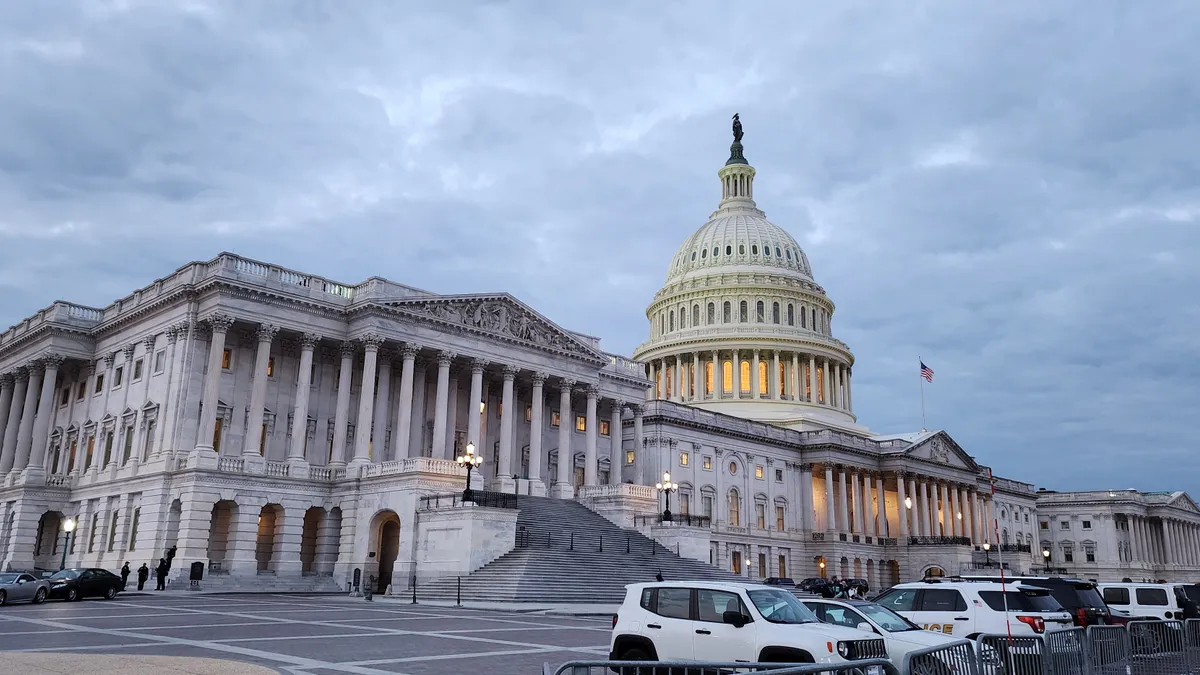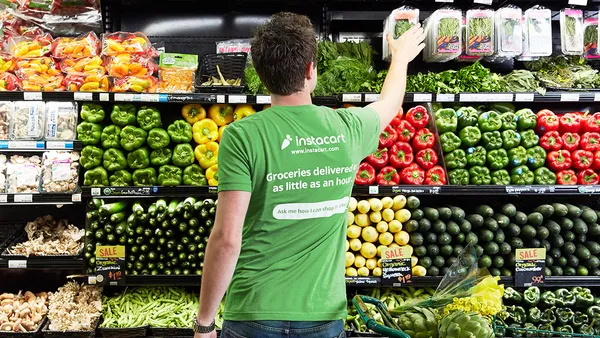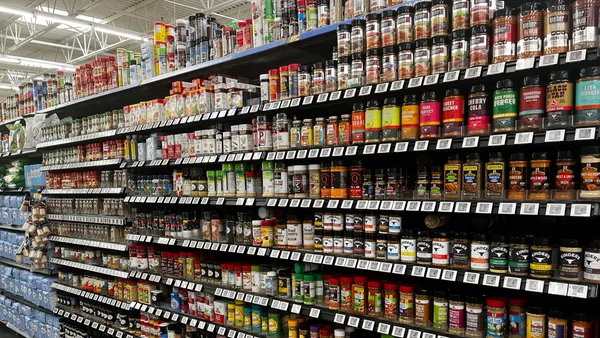Dive Brief:
- The National Grocers Association (NGA) outlined its 2023 farm bill priorities for independent grocers in a letter to the U.S. Senate Committee on Agriculture, Nutrition and Forestry and to the U.S. House Committee on Agriculture on Thursday, according to an emailed press release.
- The association’s priorities center on expanding access to SNAP in grocery stores, protecting retailers from fees and regulations such as an EBT tax and supporting healthy food purchases with SNAP, noting that independent grocers are a fundamental component of expanding access to healthy food throughout the U.S.
- Over the past year, grocers have made significant efforts to expand access to SNAP participants, such as enabling digital purchases made with those benefits.
Dive Insight:
The NGA’s letter expressed approval for farm bill initiatives addressing hunger, supporting local economies and promoting healthy eating, and asks Washington, D.C., lawmakers to strengthen programs aiding these efforts, including SNAP benefits.
“As deliberations begin on Capitol Hill on the 2023 Farm Bill, NGA is ready to work with lawmakers to ensure the needs of the independent grocery industry are addressed,” Stephanie Johnson, the NGA’s vice president of government relations, said in the press release.
She continued: “Legislation must consider the critical role independent grocers play across America so they can continue expanding food access and supporting local economies.”
The NGA’s letter outlines 12 priorities for the 2023 farm bill, including opposing the collection of retailer-specific basket-level purchasing data and urging the creation of incentives for grocers to operate in rural communities. The association also pushes for the continuation of SNAP online, asking Congress to make the feature permanent and provide the USDA with resources to implement the program and onboard other stores.
Expanding access to healthy and nutritious foods is another key recommendation from the NGA as it urges Congress to oppose “large programmatic changes to SNAP like block granting or migrating to bulk food distribution boxes,” the letter said. The association also advocates for expanding and streamlining the Gus Schumacher Nutrition Incentive Program (GusNIP), which supports providing incentives to boost purchases of fruits and vegetables by low-income consumers.
The NGA notes that increases in the fees associated with card payments are becoming one of the biggest operational costs for food retailers. To combat this, the NGA’s letter asks Congress to permanently ban EBT processing fees, continue to prohibit interchange fees and promote competition among state EBT processors.
SNAP benefits have become more mainstream in the grocery industry in recent years, with 22.3 million households receiving SNAP benefits in October 2022, per USDA data. Between Jan. 1, 2021 and March 31, 2022, 9.3 million households made online SNAP transactions. Forty-nine states and Washington, D.C., allow retailers to sign up to offer SNAP online purchasing.













